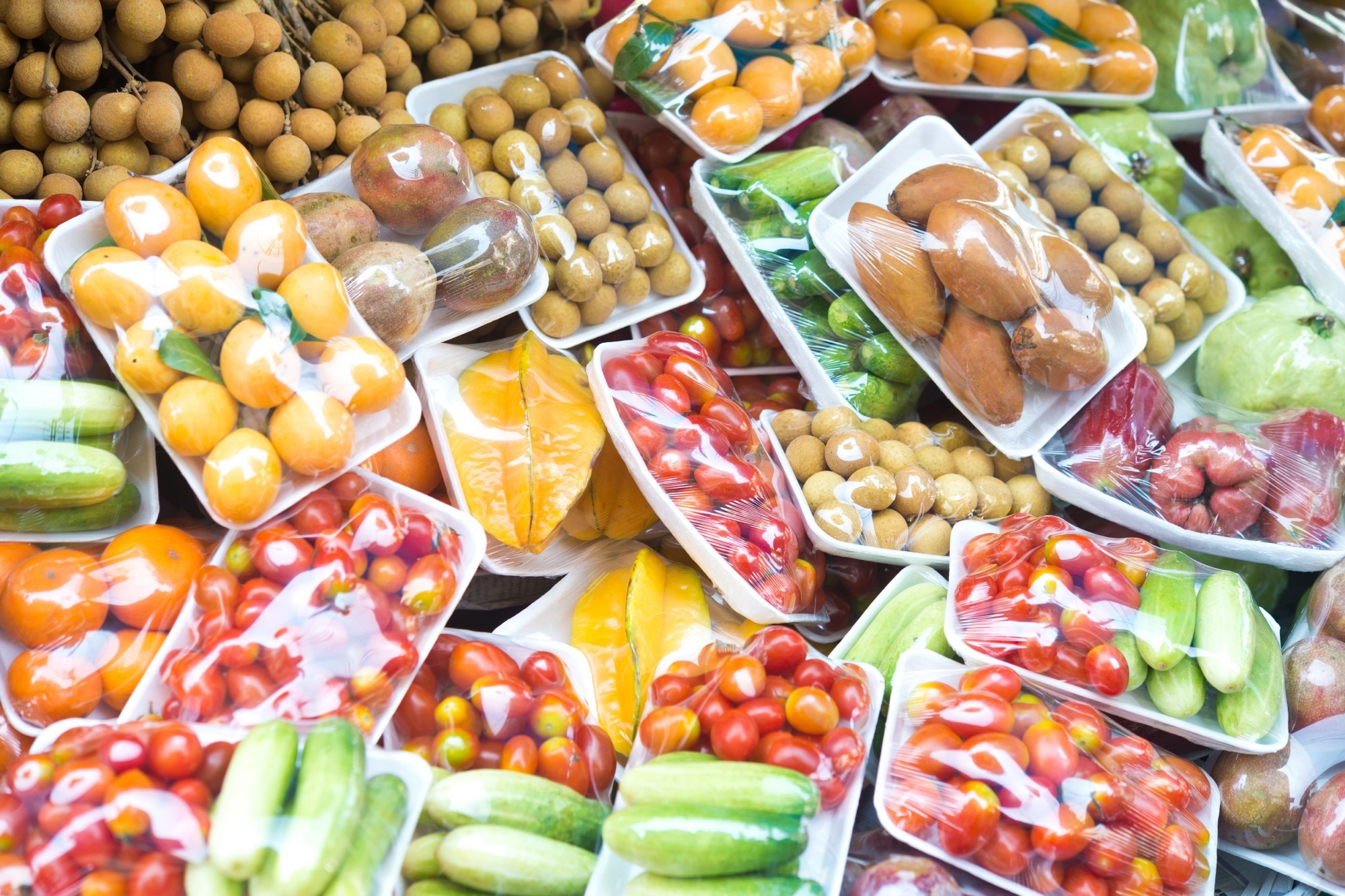A Rutgers scientist has created a biodegradable, plant-based coating that can be sprayed on foods to protect them from pathogenic and spoilage microbes as well as transportation harm. This could be an ecologically acceptable alternative to plastic food wrap and containers.

Image Credit: Shutterstock.com/Arctic ice
The customizable approach could help safeguard human health while reducing the negative environmental effect of plastic food packaging.
We knew we needed to get rid of the petroleum-based food packaging that is out there and replace it with something more sustainable, biodegradable, and nontoxic. And we asked ourselves at the same time, ‘Can we design food packaging with a functionality to extend shelf life and reduce food waste while enhancing food safety?’
Philip Demokritou, Director, Nanoscience and Advanced Materials Research Center, Rutgers School of Public Health and Environmental and Occupational Health Sciences Institute
Philip is also the Henry Rutgers Chair in Nanoscience and Environmental Bioengineering.
Demokritou added, “And what we have come up with is a scalable technology, which enables us to turn biopolymers, which can be derived as part of a circular economy from food waste, into smart fibers that can wrap food directly. This is part of new generation, ‘smart’ and ‘green’ food packaging.”
The Harvard-Nanyang Technological University/Singapore Sustainable Nanotechnology Initiative supported the research, which was done in collaboration with Harvard University experts.
Their study, which was published in the journal Nature Food, offers a novel type of packaging that uses polysaccharide/biopolymer-based fibers. The stringy material can be spun from a heating device that looks like a hair dryer and “shrink-wrapped” over items of different sizes and shapes, similar to the webs spun by the Marvel comic book character Spider-Man.
The resultant material, which protects food from bruising and includes antimicrobial compounds to prevent spoiling and dangerous germs like E. coli and listeria, is used to encapsulate food goods.
The research paper describes a method for producing biopolymer-based coatings for food packaging and quantitative assessments of these coatings’ efficacy in extending the shelf life of avocados by 50%. The coating can be rinsed off with water and degraded in soil within three days, according to the study.
The new packaging aims to solve a critical environmental issue: the waste stream’s expansion of petroleum-based plastic items. According to Demokritou, efforts to decrease the use of plastic, such as legislation prohibiting the use of plastic shopping bags in areas like New Jersey, can assist in alleviating the situation. He, on the other hand, wants to do more.
“I’m not against plastics. I’m against petroleum-based plastics that we keep throwing out there because only a tiny portion of them can be recycled. Over the past 50 to 60 years, during the Age of Plastic, we have placed 6 billion metric tons of plastic waste into our environment. They are out there degrading slowly. And these tiny fragments are making it into the water we drink, the food we eat, and the air we breathe”, stated Demokritou.
Evidence collected by Demokritou’s study team suggests potential health consequences.
The new fibers encasing the food are infused with naturally occurring antibacterial substances such as thyme oil, citric acid, and nisin, according to the report. The Demokritou research team can design smart materials to function as sensors, activating and eliminating bacterial strains to ensure that food arrives uncontaminated.
According to Demokritou, this will address the rising worry about food-borne diseases while also reducing the likelihood of food spoiling.
Kevin Kit Parker, Huibin Chang, Luke Macqueen, Michael Peters, and John Zimmerman of the Disease Biophysics Group, John A. Paulson School of Engineering and Applied Sciences; and Jie Xu, Zeynep Aytac, and Tao Xu of the Center for Nanotechnology and Nanotoxicology, Department of Environmental Health, Harvard T. H. Chan School of Public Health conducted the research.
Journal Reference:
Wang, Y., et al. (2022) Protecting foods with biopolymer fibres. Nature Food. doi:10.1038/s43016-022-00519-6.